SAF installing more than 300 smart meters in 3 camps to push units to cut water, electricity use
SINGAPORE: More than 300 smart meters are being installed at Jurong Camp, Paya Lebar Airbase and Changi Naval Base in a pilot to encourage units to reduce their water and electricity consumption, amid a broader sustainability push by the Singapore Armed Forces (SAF).
The idea is to make units more aware of their consumption, and to possibly push reductions through “friendly competition” and “sustainability challenges” in future, said Brigadier-General (BG) Kelvin Fan, the SAF’s Chief Sustainability Officer.
The pilot is expected to be completed by 2023 before more meters are rolled out to other camps and bases, added the Ministry of Defence (MINDEF) in a press release on Wednesday (Mar 2).
The initiative was first announced by MINDEF during its Committee of Supply debate in 2021, where it also outlined other green targets.
These included reducing the growth of overall carbon emissions by two-thirds by 2030, cutting water consumption by 10 per cent and waste generation by 30 per cent by 2030.
USING METERS TO CUT CONSUMPTION
The smart meters can provide water and electricity consumption data on a daily – or even hourly – basis, compared to previous systems that provided it on a monthly basis.
The Defence and Science Technology Agency (DSTA) will use data analytics to analyse consumption patterns, while the data will be aggregated on a dashboard that unit commanders can view, said MINDEF.
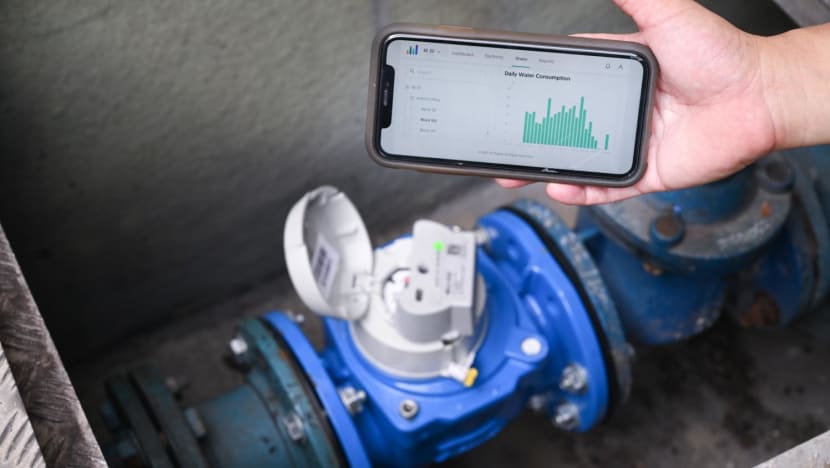
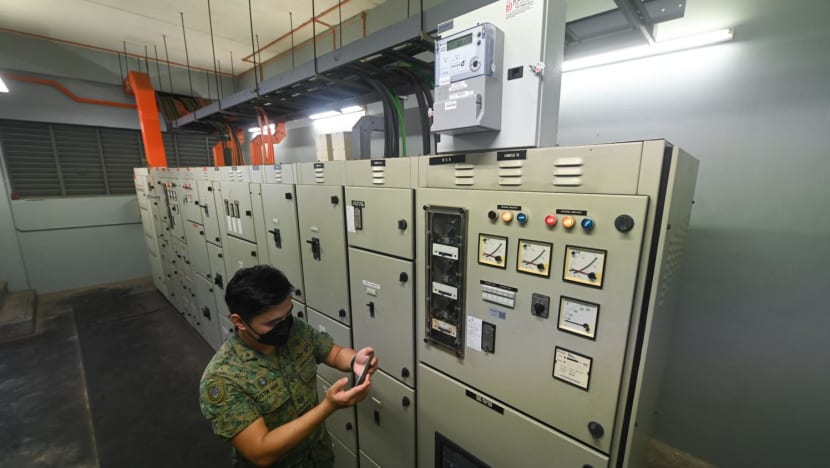
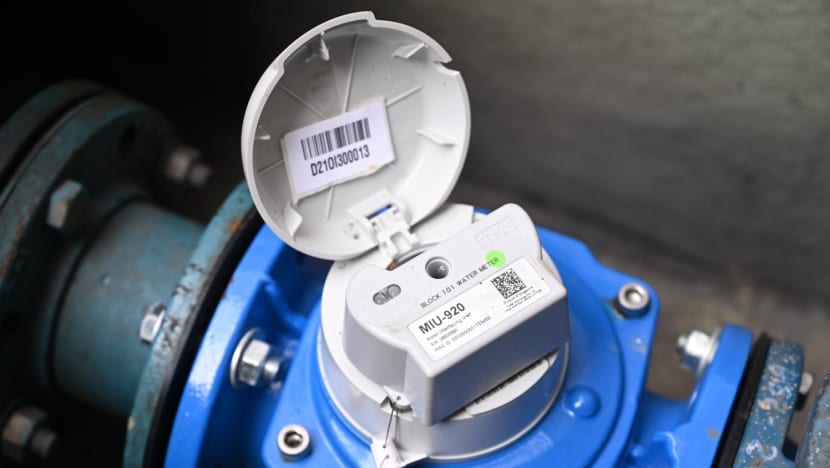
“With access to the data, these commanders will have sight of their unit’s performance in comparison to other units, and can take concrete steps to encourage responsible green behaviour among the servicemen in order to achieve desirable outcomes in green efforts,” it said.
In particular, BG Fan said “peer pressure” is one way to “incentivise excellence”, citing examples of other reported parameters such as a unit’s fitness test results or operational readiness.
He also said: “There are many ideas that we can have to shape (behaviour) and we are learning from best practices – things like sustainability challenges.
"You can have friendly competitions between different camps, different units and so on. These are things we are still thinking (about), but we are developing our ideas.”
Lieutenant Colonel Quek Shi Jian, Head of Logistics, 3 Div, said that since the pilot began at Jurong Camp 1, the camp’s soldiers have been “more conscious of their utility usage and more responsible for the use of precious resources like water”.
“Our camp commanders have also been proactively monitoring usage patterns to study consumption behaviours in hopes of encouraging good and sustainable habits among servicemen,” he said.
SOLAR PANELS AND ELECTRIC VEHICLES
In addition to the smart meters, about 28,000 solar panels have been installed across SAF buildings.
By 2022, about a quarter of its camps will have solar panels, delivering 20 mega-watt peak of electricity – equivalent to the consumption of about 5,000 four-room flats.
And by 2025, two-thirds of its military camps will have solar panels generating 50 mega-watt peak of electricity, said MINDEF.
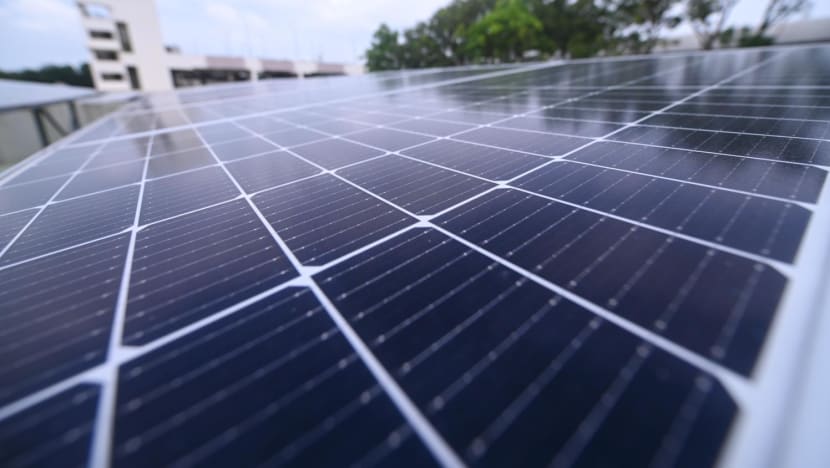
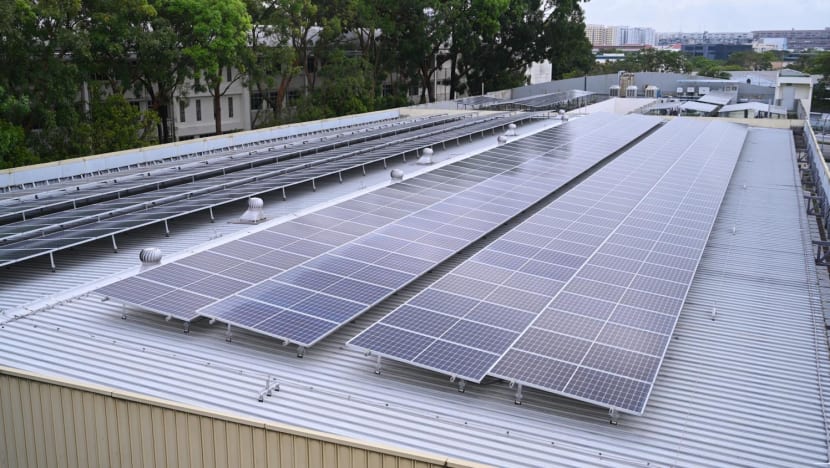
The SAF also earlier pledged to replace its entire administrative fleet with electric vehicles – a process that will begin this year.
Charging stations will be built at Kranji Camp III and Gombak Base as part of implementation trials, said MINDEF.
REDUCING WASTE
As for efforts to reduce food waste, MINDEF noted that SAF has reduced this to 1 per cent.
Food waste recycling is also being done in 14 cookhouses. In this process, food waste is collected and sent to the Ulu Pandan Water Reclamation Plant, where it is mixed with used water sludge to produce biogas for energy generation.
The remaining cookhouses will join the programme when the National Environment Agency’s Tuas Nexus Plant is completed in 2025, said MINDEF.
Overall, BG Fan said several of SAF’s sustainability initiatives “will be proliferated so long as they work well, and they don't compromise operational readiness, or lead to a spike in spending”.
EXTERNAL ADVISORY PANEL
The SAF has also set up an external advisory panel for environmental sustainability to ensure its “efforts are guided by science, data and evidence”.
Chaired by Professor Tan Thiam Soon from the Singapore Institute of Technology, the panel will include 12 other experts from various domains such as green energy, sustainable infrastructure and waste management.
The panel will provide assessments and recommendations for MINDEF and SAF’s sustainability efforts, and share knowledge on technology and best practices.
The first meeting, which took place in February, was a “productive” one, said BG Fan. “We look forward to partnering with them and benefiting from the expertise, experience and ideas throughout our sustainability journey.”















